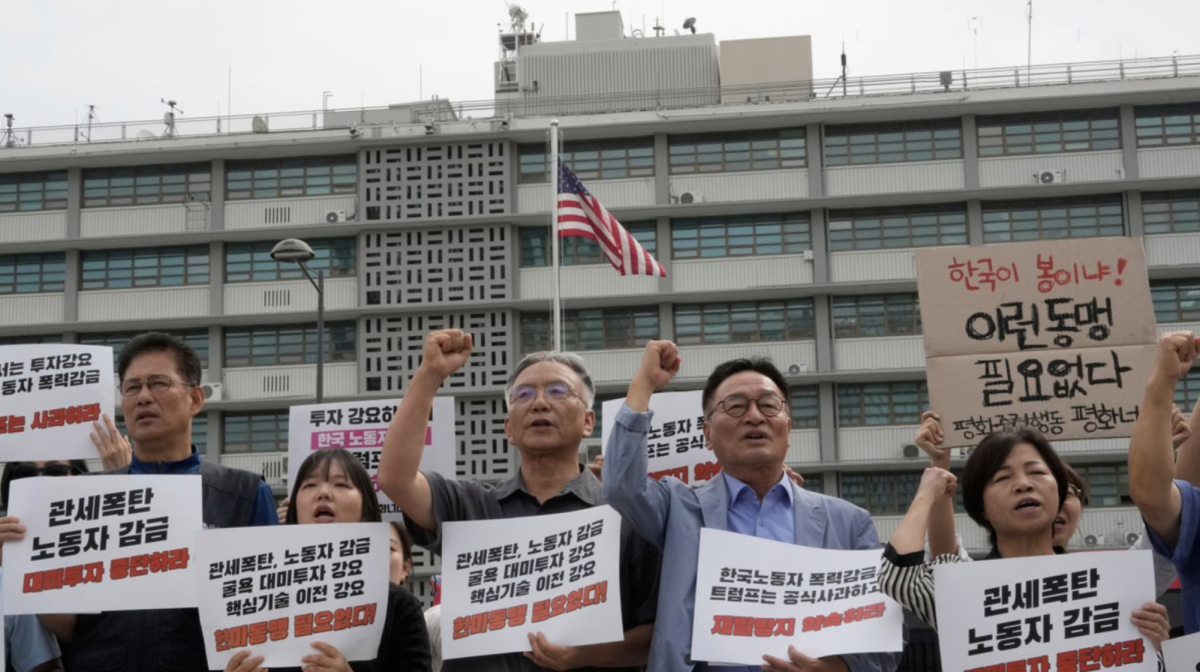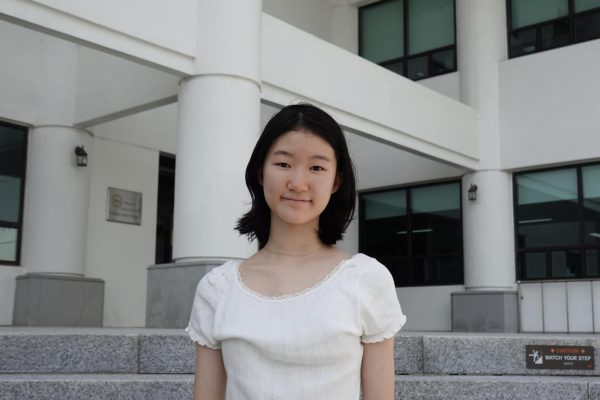Over 300 South Korean workers were taken into custody after an Immigrations and Customs Enforcement (ICE) raid on a new Hyundai battery plant in Georgia. The images of the Sept. 4 raid featured armed US agents clasping the detainees in handcuffs and ankle chains, fueling widespread anger and protests across South Korea.
Most of them had been in the US on a B-1 business visitor visa, which authorizes foreign workers to stay for six months and receive paychecks in their home country. While there are limits to the kind of work they are authorized to do, Korea is also one of 41 countries included in the US Electronic System for Travel Authorization (ESTA). This program offers a visa waiver, essentially giving visitors a B-1 visa status for 90 days.
Accusing the workers of overstaying or abusing their visas, ICE agents stormed into the factory and arrested over 300 workers, planning to deport them. However, the workers’ lawyer Charles Kurk argued that while there is some merit to the claim, many of the detained workers’ visas were valid. He emphasized that these workers were not planning to immigrate to the US, but were temporarily staying to oversee the initial development of the plant and train American workers.
“Unfortunately, I think that South Korea will have some harsh words for the U.S. but that will be all,” Steve Nave, World History teacher, said. “Most times in situations such as these, the large-scale political and economic relationship trumps human rights issues. The climate towards immigrants in the U.S. at the moment is extremely unfortunate. Until countries being discriminated against take a stand, I am afraid these types of raids will continue. I believe it will take a unified effort from all the countries being targeted to help prevent things like this from happening.”
After the raid, Hyundai paused all work in the plant, which would have opened up around 8,500 jobs and was the largest economic development in the state’s history. Despite President Trump’s suggestion that the workers return to the factory, South Korea’s government sent a plane to the US for the workers to recuperate at home. Both sides have agreed to negotiate a reformed visa system, contingent on the continuation of the work on the factory.


